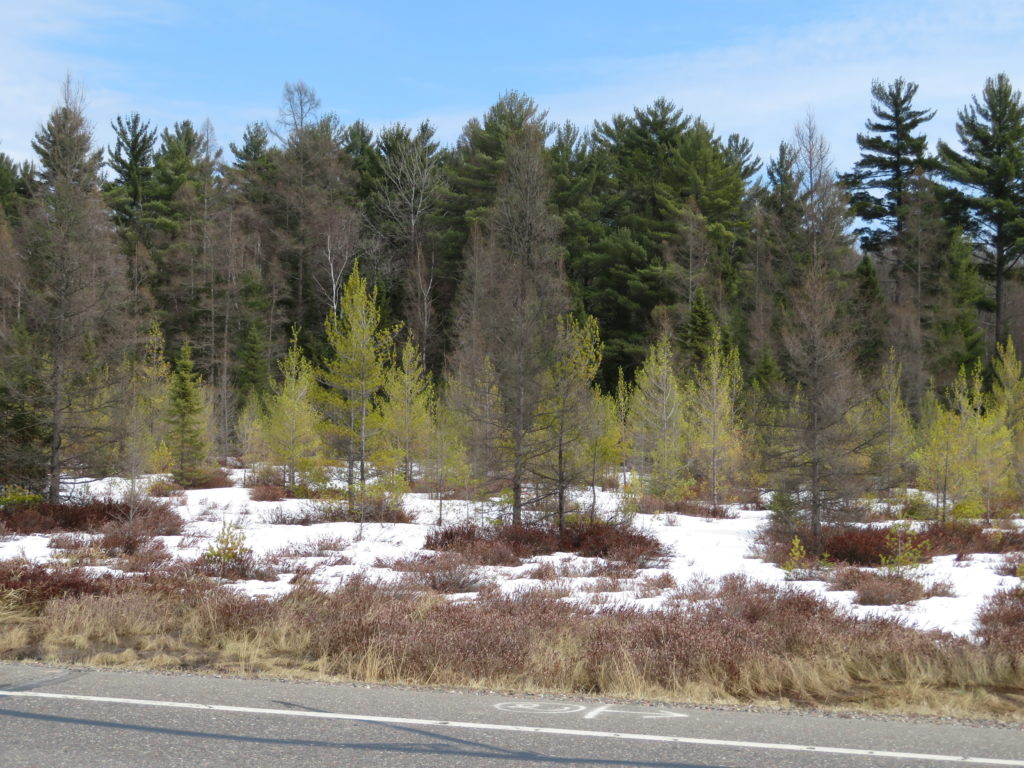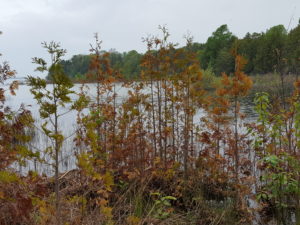
Trees have grown in this low area for many years, but high-water levels and constant rainfall in 2017 was too much for them. The larger trees have already died, and the small white pine are not doing well at all. Photo: Linda Williams
By Linda Williams, forest health specialist, Woodruff. Linda.Williams@wisconsin.gov; 715-356-5211 x232
I continue to get calls about dying trees that are a direct result of all the rainfall we got throughout last year’s growing season. When the ground is saturated so many times throughout the growing season as we saw last year, trees are put under significant stress. Even trees that typically grow well in seasonally wet areas may not do well when the ground is wet for extended periods. Under these conditions, roots start to die due to lack of oxygen, and the crown of the tree will also die back.

Northern white cedar growing along a shoreline are dying due to constant high-water levels. Photo: Linda Williams
Although some trees had been growing for 10-12 years in areas of seasonal wetness, the stress from last summer’s overly wet conditions was just too much for them. This kind of mortality is commonly seen along lakeshores and streams, in swampy areas and overflow areas that typically only have water in the spring, and even in some low areas that rarely experience saturated soils or standing water. The USFS Management Guide for Flooding Damage gives some suggestions for planting in low areas or flood-prone areas, although there is probably no help for trees already turning yellow or red. They may die back a bit and survive, but I suspect many will just die.
